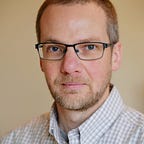Future Scientist in Training!
This is a guest post from Ella Ramage, who spent a week with us on work experience, helping us prepare for the exhibit.
Hello! My name is Ella and for the past week, I have been doing work experience, here, at Keele University. I am 14 years old and in year 10 at school, so I have just begun my GCSE course. I have always been interested in maths, science and computers and I enjoy coding; I am currently studying GCSE computer science at school. I wanted to come to Keele University to see what it’s like to work as an academic and possibly help out with a research project.
I have been working with Ed and Dimitra on their quest for a life-like prosthetic hand, which I’m sure you know all about by now! It has been great fun so far! I’ve practised using a piece of software called OpenSim, which is used to analyse models of the musculoskeletal system and generate simulations of movement. In doing this, I have learnt all about the different muscles of the hand and what they are used for. I never knew it took so many different muscles to complete a simple task like holding a pencil!
I also added to a computer program to add more muscles to the model hand in OpenSim, so now we are able to show the muscles used for abduction and adduction in the exhibition. The most fun part of the week so far has been working (or playing!) with the robotic hand and using the Leap Motion controller to control its movement. When you move your hand into particular positions the Leap will detect this and a computer program in Matlab (that I helped write!) will convert this to the hand model in OpenSim, calculate the angles of the finger joints and make the robotic hand into these positions as well. You wouldn’t realise how much maths and complicated coding goes behind it, unless you saw!
Another valuable part of my week on work experience was talking to many inspirational scientists and learning about what they do and how they got to where they are now. It was interesting to see how most of them started in a very similar background, studying maths and physics, biology or chemistry at A-level, and then choosing a slightly more specific route later when they went to university. However, there are a huge variety of fields that these scientists went into after that, just proving how science contains a very wide spectrum of job opportunities from biomechanics to crystallography. Most importantly being an academic means that you can research whatever interests you and what you think could be most useful to others.
This week I have learnt and discovered so many things and seen many possible career pathways for the future. I have improved on a variety of skills from maths, science and coding to communication skills. Thank you Ed and Dimitra for providing me with this fantastic opportunity!
